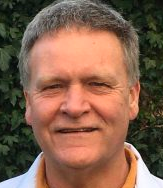Back and Neck Pain
Back Pain Research
 In 2008, a Randomised Controlled Trial of 579 NHS patients suffering Low Back Pain was published in the British Medical Journal (BMJ) – Randomised controlled trial of Alexander technique lessons, exercise, and massage (ATEAM) for chronic and recurrent back pain. It showed the Alexander Technique achieved an 86% reduction in pain compared to standard GP care.
In 2008, a Randomised Controlled Trial of 579 NHS patients suffering Low Back Pain was published in the British Medical Journal (BMJ) – Randomised controlled trial of Alexander technique lessons, exercise, and massage (ATEAM) for chronic and recurrent back pain. It showed the Alexander Technique achieved an 86% reduction in pain compared to standard GP care.
See the BMJ’s two part 12 minute video on the research and the Alexander Technique below:
The Alexander Technique and Back/Neck pain
The Alexander Technique addresses the cause of back and neck pain and not just the symptoms. Research ( see above) has shown that the Alexander Technique can greatly reduce back pain where the cause is muscular or postural and can provide long term relief.
Sessions are individual. You are helped by the highly-trained hands of an Alexander Technique practitioner, combined with verbal explanation. The Technique gives you an understanding of how to move with the design of your body (ie in a better coordinated way), rather than against it (by using too much muscular tension). Over a series of sessions, the aim is to help you regain the ability to move in a more youthful way so that routine activities – such as walking, lifting, reaching, climbing stairs, getting out of bed or into a car – can be accomplished pain-free. This aids the healing process and helps avoid re-injury.
Since the Alexander Technique helps increase body awareness, you become more attuned to your body’s warning signs of tension and compression that may lead to pain. You acquire the capacity to lessen or prevent episodes of pain. Research (see below) has shown this enables you to stop or decrease your dosage of painkillers or anti-inflammatory medications. You demystify your back problem — you understand where it comes from and how to change it.
Further Research
Back Pain Research: In a NHS research trial in 2011 in Bristol into chronic pain where 75% of those taking part suffered back pain, those patients using the Alexander Technique were able to stop or considerably reduce their pain medication.
Neck Pain Research: A major 3 year UK trial funded by Arthritis Research UK started in October 2011 is taking place at the University of York. It is investigating the effectiveness of two separate therapies, one of which is the Alexander Technique, for people with chronic neck pain compared with usual GP care.
Arthritis Research UK funded ATLAS Chronic Neck Pain Research Trial (2015)
What Doctors Say
97% of people with back pain could benefit by learning the Alexander Technique – it is only a very small minority of back pain sufferers that require medical intervention such as surgery.
Jack Stern, Spinal Neurosurgeon
Lessons in the Alexander Technique taught me how to sit in a state of lumbosacral poise, and my chronic low back pain gradually became cured. The Technique is true education. Compared to surgery (e.g. for low back pain or for chronic obstructive lung disease) a course of instruction is inexpensive.
John H. M. Austin, MD
Professor of Radiology; Chief, Division of Radiology
Columbia-Presbyterian Medical Center, New York, NY
Neck problems are virtually an occupational hazard for Ear, Nose and Throat surgeons. I had serious problems during my working years, but hoped for relief on early retirement. This was not the case and limitation of cervical (and thoracic) movement became quite an intrusion on my life. Physiotherapy and medication gave only short-term improvement. On being introduced to the Alexander Technique I was somewhat sceptical that anything was going to work, but can only describe the relief gained, and maintained, as quite incredible. General posture has improved and neck mobility has returned to that last experienced more than twenty years ago. What more could one ask for?
Kieran Tobin, M.B, B. Ch, BAO, FRCS(Eng), FRCS(Irl), D.L.O., Senior Surgeon, University College Hospital Galway Ireland. Past President of the Irish Otolaryngological, Head and Neck Society and Past-President of the E.N.T. Section of the Royal Society of Medicine of Ireland.
The Alexander Technique makes sense in that appropriate use of the body will lead to a reduction of various musculoskeletal disorders and remediate others which are established. No equipment is needed, just the skill and training of the Alexander Technique teacher. This technique is very worthwhile as a primary preventive therapy. It is especially useful when posture is a key factor in back injuries while lifting and for workers who perform repetitive tasks while sitting.
Robert D Greene, MD, Emergency Department, Norwalk Hospital, Norwalk, CT
I recommend people to the Alexander Technique who have not improved with traditional rehabilitative therapies. Part of their pain may be due to posture and the improper use of their bodies. Many people who have neck or back pain and have gone through heat, ultrasound and massage with no relief can be helped by learning the Alexander Technique. It definitely works. As one well-versed in using physical therapy and biofeedback, I know how valuable this technique is. I highly recommend it.
Barry M. Schienfeld, MD, Specialist in Rehabilitation Medicine and Pain Management, Community General Hospital, Harris, NY
What People Say
I had a painful neck condition, resulting in lack of sleep, mental health problems and a lot of time off work. My consultant recommended an operation for my neck.On the recommendation of my daughter who is a singer, I tried the Alexander Technique.6 years later, I have not needed the operation, haven’t had to take more time off work, have significantly reduced pain and feel much happier
Recommended by his Physiotherapist: Back Pain
My motivation for starting Alexander Technique sessions was to heal my long standing and painful back condition, having tried physiotherapy and osteopathy unsuccessfully over a number of years.
Although my back condition was treated successfully, I continued to have Alexander Technique sessions as it maintained my general and specific wellbeing. I have found Derek Climpson to be an effective and excellent practitioner of the Technique.
Mike
School teacher recommended by her Osteopath: Back Pain
Having suffered with back pain for most of my life, I started Alexander Technique lessons about 12 years ago on the recommendation of an osteopath. Since then I have not had any serious problem with back pain and if I do have any twinges, I know (from the AT) what to do to remedy the situation. Despite increasing age and the onset of arthritis I keep active including looking after my new grandson. I can thoroughly recommend the Alexander Technique to anyone in a similar situation.
Rona
Nurse : Osteoarthritis, Back pain and Sciatica
Many years ago, I suffered recurrent attacks of acute back pain and sciatica, caused by osteo arthritis. My ability to work as a nurse, and lead an active family life, was severely affected.
I started classes with Derek, who patiently helped me to become aware of harmful habits of movement and stance. Through him I learnt to manage and control my pain, and prevent recurrence.
I continue my regular classes as I am sure that my ability to make the best of my arthritic condition at the age of 75yrs, is due to the awareness I have gained from them. I always leave smiling, feeling lighter and more positive.
Brenda
Back Pain
After straining my back using ladders to put up lights, I decided to try the Alexander Technique and mentioned it to my doctor who was in total agreement.
I immediately saw an improvement in my posture relieving the pain in my back.
I will be forever grateful that I went down the right road. It was certainly a good investment in my overall wellbeing.
Kathryn
Anxiety and Back pain
I watched a Channel 4 TV documentary in 1985 on the Alexander Technique and decided to give it a try.
At the time I was suffering with chronic anxiety problems, which I had had for 11 years, but was trying to reduce my dependency on tranquilisers. The AT lessons enabled me to recognise the signs of anxiety in my body and showed me how I could become free of the resulting muscle tension. The positive nature of Derek’s lessons helped me to come off the tranquilisers after 6 months and start the anxiety free life I have led since.
When I was working and had to give lectures or had to speak in public, application of the Technique improved my presentation delivery and my confidence in answering questions.
Perhaps a further benefit has been much reduced occurrence of back problems. These are rare for me nowadays whereas prior to starting AT lessons I would be off work or in severe pain for a few days every year.
To summarise, Derek’s lessons in the Alexander Technique have given me a much better quality of life than I would ever have thought possible 30 years ago.
Tony.
Schoolteacher: Neck and Shoulder Pain
After years of tension and pain in my neck and right shoulder brought on by the daily teaching tasks of marking exercise books and writing on boards( first blackboards then whiteboards), a few lessons in the Alexander Technique caused these problems to disappear. I did not however stop lessons since I wanted the overall feeling of wellbeing to continue. I honestly believe that had it not been for my AT Teacher I would have retired from teaching very early.
Jacky.
Neck and Shoulder pain
I had just turned 60 when I developed severe constant neck and shoulder pain when sitting at my desk at work. I became desperate thinking that I would have to retire early from my job, which was important to me.
I described the problem to a friend who had a similar experience. Without hesitation she said: “What you need is Alexander Technique!’’ and told me how it had helped her.
Within weeks of starting lessons with a local (AT) teacher I found I was able to manage the pain. A few months later it was no longer an issue and I was able to keep on working for several years beyond retirement age.
Now at 70 I am retired and have more time to pursue my musical interests – choral singing and playing classical guitar. I find my knowledge of Alexander Technique helps me in a remarkable way with both music practice and performance, and it has greatly improved my enjoyment.
James.
Music Teacher recommended by her Orthopaedic Consultant: Shoulder and Neck Pain
I had a few months’ of lessons chiefly because I had damaged my shoulder/neck playing the double bass. Where physio proved of some short term benefit, the relaxation techniques and postural awareness that I learned through my Alexander lessons, has given me a tool for life. I realised how much tension there was in my body and thus the lessons were of benefit not only as a musician but for life in general. Derek was clearly the best Alexander Teacher I had and I recommend him heartily.
Elisabeth.
Music Teacher: Neck and Arm Pain
Following an incident in which I damaged my left arm and neck, I was having problems with many everyday activities. As a violin teacher, it was also affecting my playing and I was experiencing quite a lot of pain. I had heard about the Alexander Technique through my musical connections and decided to give it a try.
Although it needed a certain amount of dedication the rewards were well worth the effort. Not only did I become pain free but I found that my violin playing actually improved and ordinary activities required much less effort. I have found the Technique to be so beneficial that I continue to have lessons periodically some 25 years later.
Susan
Member of the Clergy: Neck Pain
My neck requires regular, active maintenance to keep it flexible. The problem came to light several years ago at T-Junctions where I could not look to right or left without pain or strain. One day a large newspaper illustration caught my attention. It was of a human being from the back and showed how skeleton, nerves, muscles etc interact. The text explained the kind of guidance that the Alexander Technique could give. As nothing else I had tried had really helped, I decided to give the AT a go. I’m very glad I did. Now daily attention from me and a monthly session with Derek , my Alexander Teacher, each bring together physical care with attentive thinking – a sort of down-to-earth spirituality really!
Michael



